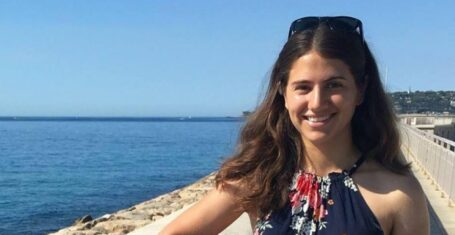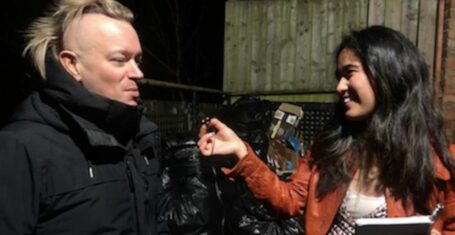
Spotlight – Julia Loveless, Director of Pirates of Penzance
David Knowles talks to Julia Loveless
David Knowles, DurhamOne's theatre reviews editor talking to Julia Loveless, the director of the Pirates of Penzance
Julia, why did you choose the Pirates of Penzance? There's a problem with this question in that I didn’t actually choose pirates as a show – the DULOG exec chose it and I went for director when it was advertised. But if you mean why did I choose to go for director that’s a different story… I had done directing before in sixth form at school but because we had drama teacher who was a dictator at heart I never really experienced the process properly. For this reason, I came to Durham expecting to enjoy being on stage more than being off it, but last year Bailey Theatre Company were looking for a director of a straight play, Our Country’s Good and I decided to give it a go. I enjoyed it so much and it completely changed my idea of what directing was like.
What's the story then? Frederic, a young man of 21 was mistakenly apprenticed to a pirate crew when he was just a boy. Finally out of his indentures today, the story follows him as he returns to civilisation for the first time and instantly falls in love. Of course, it’s not that simple – there’s a Major General in the way, a bevy of beautiful maidens and a few police thrown in for good measure: hilarity ensues.
What's the music like? Pirates is an operetta. In other words, it’s an opera without the drawn out arias or language barriers. This means that the music for it is somewhere in between music theatre and opera – a middle ground. It’s challenging, but beautiful – as well as being utterly ridiculous in parts (a common feature of G&S). Seth, our MD, has pulled together a brilliant orchestra and the cast have done so well in picking it up. It looks set to be very impressive.
What are your favourite moments in the show? Haha! That’s a difficult question. Mostly because I don’t want to give too much away! One of them, though, is the Major General’s solo – during which, Doug (our major general) has changed the words to be perfectly relevant to Durham Students. It’s very witty. But there are lots of moments throughout the show that have me cracking up – and that’s still happening after seeing it again and again for weeks of rehearsals!
What are the set and costumes going to be like? G&S are brilliantly kind when it comes to staging their operettas – at least in terms of set! Their works consist of two set – Act 1 and Act 2. In this sense, the set is actually going to be understated – merely a reminder of where the action is happening but not a catalyst for the action. The real focus has to be on the music and plot. Similarly, the costumes are going to compliment the era – fashions from the 1870s when Pirates was set. Pirates has been modernised many times, but I wanted to keep it traditional. Partly because that era is very easy to laugh at and partly because I wanted people who had never seen a G&S before to come in and see it as they might have first designed it (with a bit of cheeky modernisation slotted in).
How has it been directing with music? Is it quite different from directing a ‘straight’ play? Music and drama are two of my passions. Part of the reason why I interviewed for Pirates in the first place was because, having done Our Country’s Good, I wanted to do something that involved both. The biggest difference, I’ve found, in directing a show involving music is the logistics. No longer are you blocking a scene to satisfy yourself, but you’ve also got to think about the best places for people to be to sing a solo, the most complimentary entrances for dance numbers. It suddenly becomes much more of a cooperative process – something that I’ve loved about working with Seth and Emma (choreographer). Every element has to work together to give the best result for all three.
Do you have a philosophy of acting that you can sum up in a sentence? In all honesty, I don’t think you can have a philosophy of acting. The closest thing I can think would be this: acting is something that everybody does. The difference between actors on stage and the rest of us is that they have managed to transfer acting from real life into an invented story. For me, the most important thing as a director is to make sure the cast look like their character – not necessarily in costume or appearance, but in personality and mannerisms. They have to be believable.
Do you have a show that you are dying to direct? If so, why? There are many shows I would love to direct and for lots of different reasons. Hairspray is certainly in the top 10 because the combination of excellent, toe-tapping music rooted in such a pivotal time in America’s history is irresistible. For a similar reason, The Sound of Music and My Fair Lady would also be up there. I can also confess to having a few day dreams about Wicked, simply because it’s amusing to think of all the logistical nightmares and try to imagine how I’d get around them. Or maybe I just like the colour green…









































